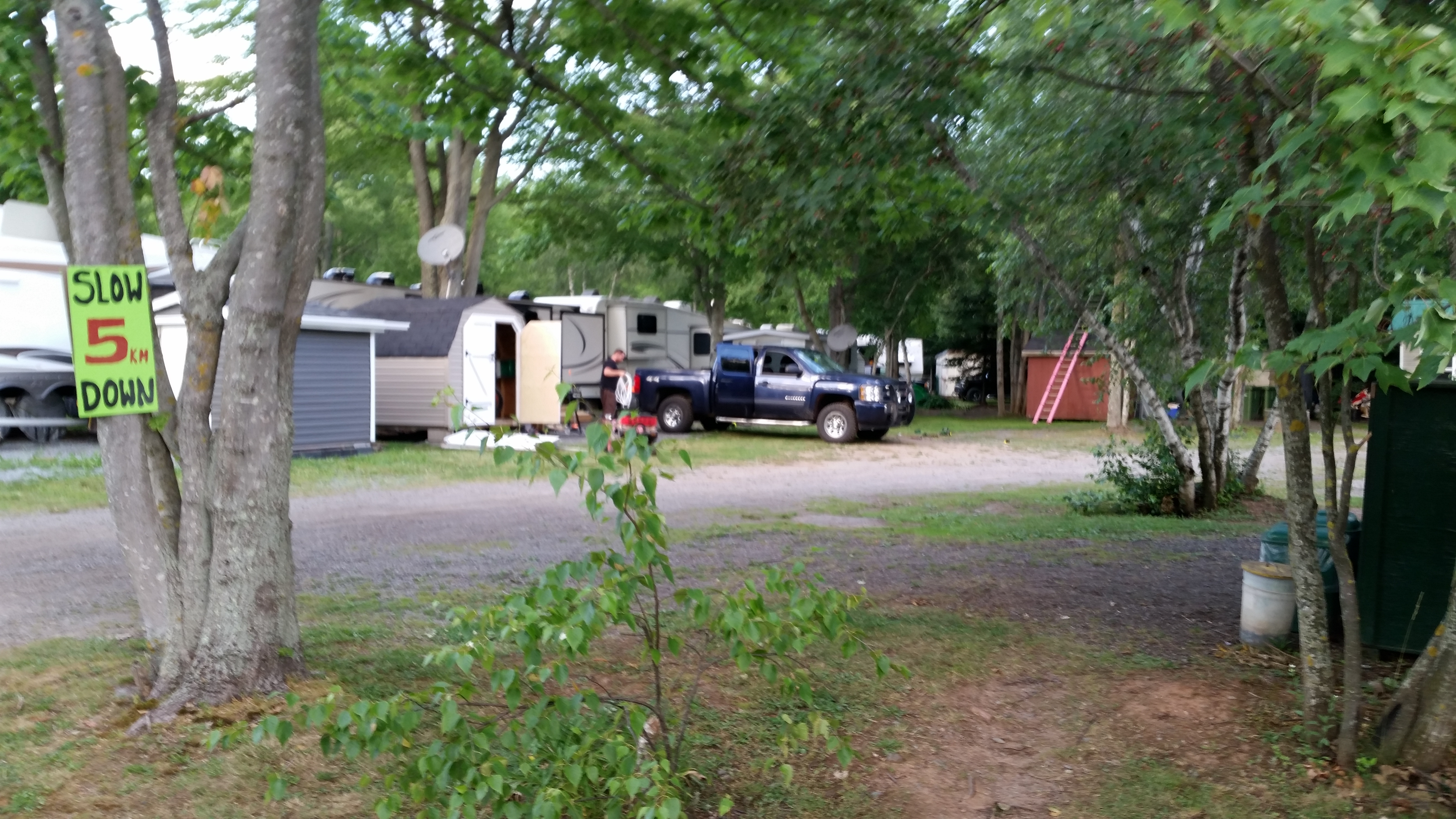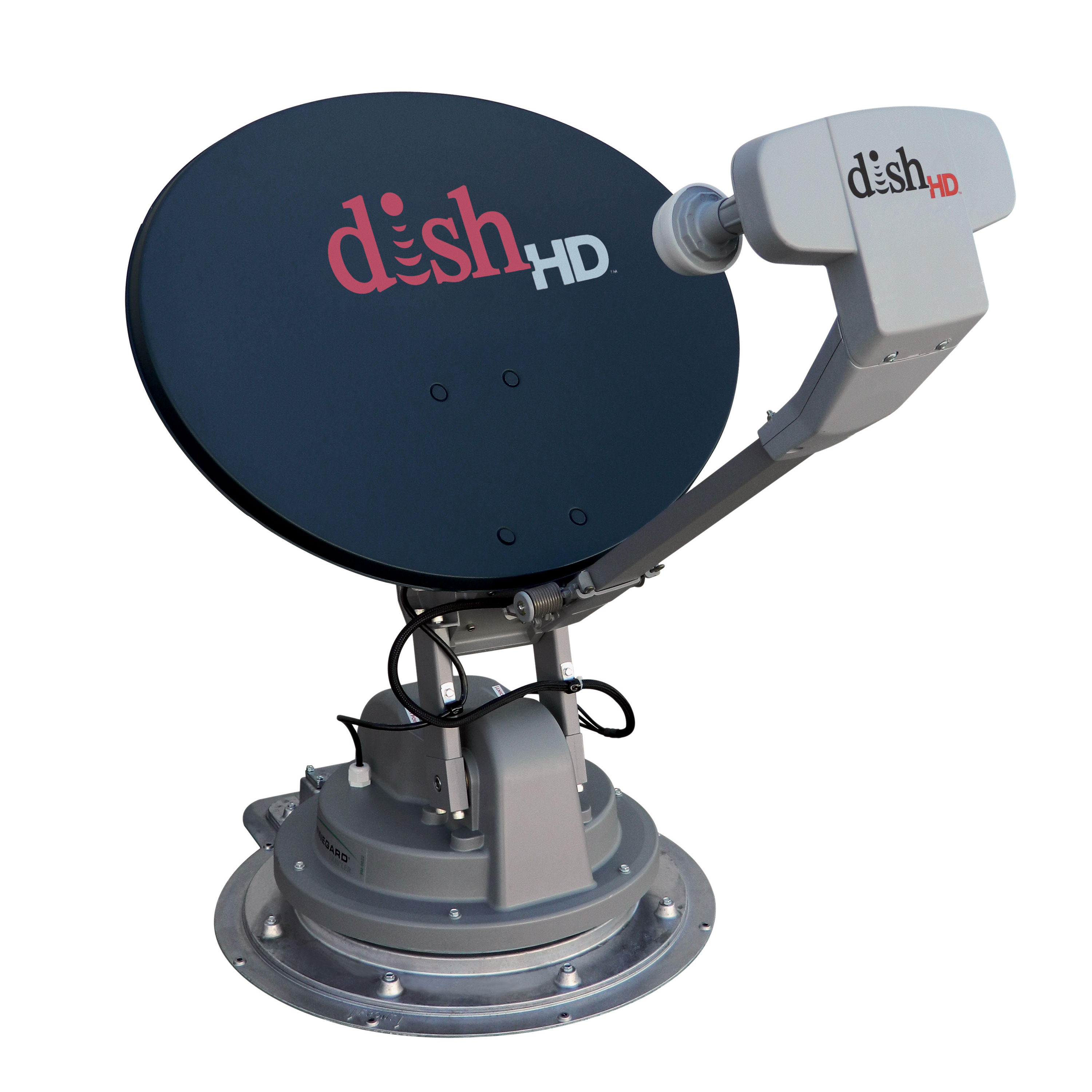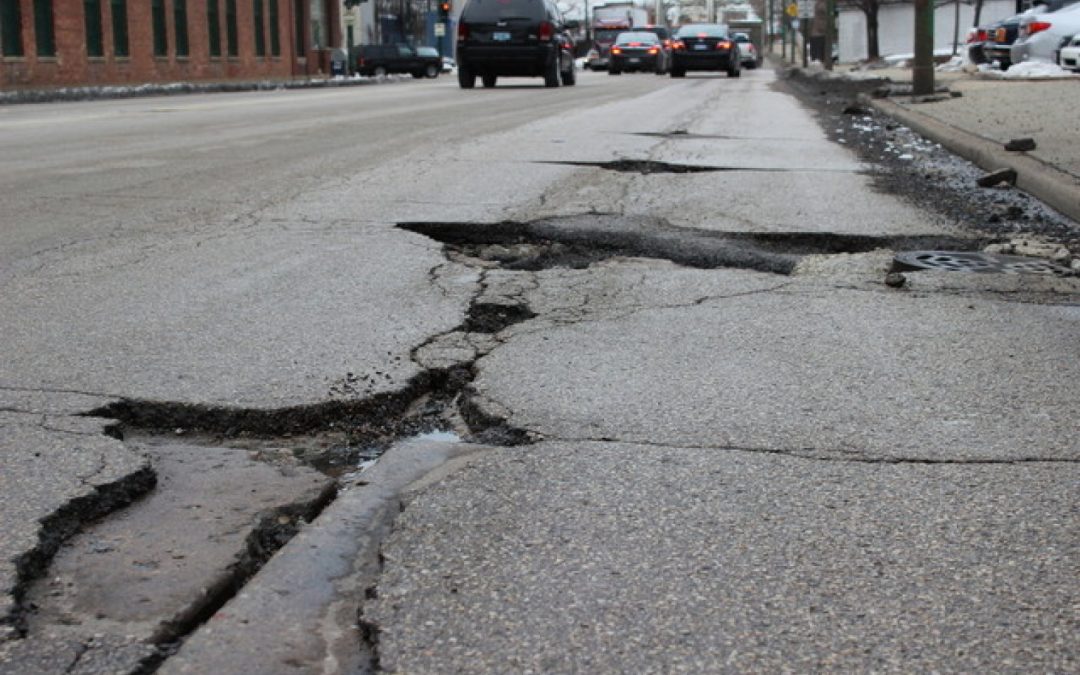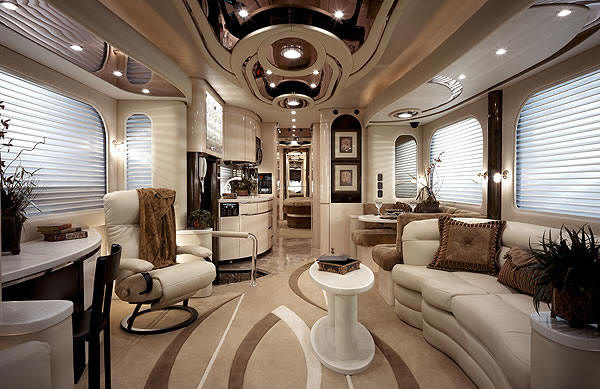When you go to different places in the country, or do more than minimal international
travelling you tend to form new opinions, and old opinions tend to change.
After towing a big fifth-wheel around for over eight years and trekking around the Canadian
Maritimes for 15,000 miles, I confess I have developed some pretty strong views on
campgrounds, RVs, roads and the internet, among other things.
The impetus for including my thoughts here is not merely to gripe, but rather to spur conversations on the blogs.
I'm not so naive to think that others won't disagree; in fact, I encourage dissention and
contrary opinions - that's what the blogs are for. So please take the following discussions
as starting points for a healthy and vigorous exchange. I look forward to hearing what you
have to say.
Campgrounds
|
I haven't stopped to count yet but I think we have been to somewhere between 60 and 70
RV campgrounds overall, and have noticed several things along the way. First, different campgrounds can
be as widely varied as flan recipes; you never really know what you're going to get until
you get there. Second, services tend to vary depending on what time of the year it is and
what site you get. Third, attitudes of fellow campers depends very much on what part of the
country you are in. Many things you can't do much about, but hopefully the following list
will provide some clues of things to look for before you reserve, and questions to ask
when you do.
Campgrounds that you have never been to before can be hit or miss. You might be pleasantly
surprised to find a little gem, or you may find that one which came highly recommended turns
out to be a dump. To minimize surprises, do your research. Look over the campground's web page
if they have one. Google for reviews by folks that have stayed there; TripAdvisor is a
good example. But a word of caution - don't put a lot of faith in them. Reviews can be faked, and star ratings are
subjective. Pay particular attention to the negative reviews, but bearing in mind that they
could just be peeved campers trying to get back. The moral is to balance the good with the
bad. One trick I use is to look at a campground using Google Earth. This shows things like
how wooded it is, whether there is water close by, how close it is to the highway, how
tightly the rigs are packed in, and other things like play areas and pools. Earth gives you
hints that websites do not.
If you will be going to an unfamiliar area, pre-plan your route with
something like Google Maps. I stated in my blog about the Canadian Maritimes that our phone GPS
led us astray several times. In such cases it's nice to have a backup.
| |

| |
[click to enlarge]
|
|
Some things that can differ widely among campgrounds include:
- General appearance. Are the grounds well maintained? Are there lots of bugs and other pests
to contend with? Are the sites well-maintained? Is there trash laying around in the outside
areas?
Campground appearance usually reflects the attitudes of the owners.
- How are the roads? Are they paved, gravel or dirt?
- Are the grounds easy to navigate, especially for big rigs? Are there trees, rocks, posts
or other obstacles which make it hard to turn without damaging your rig?
- How close together are the sites? Is there plenty of room for your slideouts. How close
will your bedroom be from your neighbor's?
- Are the sites treed? If so, will they interfere with your rooftop satellite reception?
Some campers like the woodsy feeling of lots of trees; others prefer the sunshine.
- How are the sites? Are the pads paved, grass or dirt? Are they level? Do they have
amenities such as picnic tables and fire rings? Some places we've been to have such niceties
as concrete or even covered side areas [Bryn Mawr in St. Augustine
is a good example].
- Are the hookups what you are looking for? If you have a big rig, 30 amp probably won't
be sufficient to run two A/C units in the summer heat. If you're going to be staying for
more than a few days, not having sewer at your site may not be acceptable. How close will
the hookups be to your rig?
- Do you need cable tv or internet service. If you don't already know, be aware that wi-fi
internet at most campgrounds tends to be spotty at best, especially in crowded campgrounds
where lots of people are demanding the service. Are the outer sites less likely to get
good service? Does the campground wi-fi have repeaters?
- How about amenities like lakes and streams within the campgrounds. If you like to fish then
a well-stocked lake on the grounds may be attractive, although being close by may be sufficient.
- Does the campground have things for kids to do? Is there a playground, pool, basketball
court, badmitten, croquet, gym?
- Do your dogs need an enclosed pen area? If they have pet areas, are there separate
ones for big and small dogs?
- Is there a well-stocked camp store? If not, how far is it to a supermarket?
Do they have RV supplies? If not, how far is it to an RV dealer?
- Are the grounds close to things you want to do, such as beaches, skiing, hiking,
shopping, etc? Does the campground offer passes or discounts to local
attractions?
- Does the campground offer discounts such as Good Sam, Passport America, seniors or others?
The Perfect Campground
Here is a list of things that would comprise what I think of as the perfect campground.
Campground owners take note.
- Parts of the campground should be wooded and some parts not. This allows campers to make their
own choices.
- Lots of space between sites. I realize this is a factor of economics since the bigger
the sites, the fewer there will be. But owners must remember that many if not most
campers won't reserve at a campground if they see pics of rigs jammed together. I certainly
wouldn't.
- Keep the grounds well-maintained, not just the sites. One campground we stayed at
in MA had trash piled up behind our rig. I wouldn't stay there again and wouldn't
recommend it for anyone else either.
- If the terrain permits, provide sewer service. Absence of sewer tends to discourage
campers from staying more than a night or two, since most folks detest having to close
up the rig and schlep up to the dump station.
- Speaking of dump stations, provide a sewer line and a water hose at the station.
Personally, I don't like having to dig out my sewer line, hooking it up to dump, cleaning them and
then stowing them again.
Campgrounds that do provide hoses should definitely mention it on their website.
- Provide both 30 and 50 amp when possible. This also maximizes the number of rigs you
can accomodate since most big rig campers don't like to rely on 30A, especially in hot
weather. Note also that small rigs will likely need 20A hookups.
- Make sure the water faucets are easy to turn on and off. I have been to places where
I had to get out the pliers just to turn on the water. Also, make sure the spigots are up
high enough that elderly or infirmed campers can reach them.
- Offer digital cable if possible. It may increase your overhead a bit, but you'd be
surprised how attractive 50 or 60 digital channels can be to a lot of campers.
- Two water faucets are very handy. I carry a Y-splitter so it really isn't necessary for me,
but others would find it useful to be able to access water without having to detach the water
hose.
- Provide an enclosed pet pen. If possible, have separate areas for small and large dogs.
- If possible, provide a well-stocked food and RV supplies store. This is especially true
if the campground is not close to either a supermarket or RV dealer. Selling stamps at the
store is also appreciated. So is an ice machine and firewood.
- Offer discounts. A lot of campers are on a budget and search for campgrounds that have
Good Sam, PA, senior or some other types of discount, and will eschew those that don't.
Campground No-Nos
|
Because we've been to so many different campgrunds, I have accumulated a list of the most frustrating
and problematic campground issues. Things that contribute to a bad campground are pretty much
the opposite of the things above that make a great campground.
Lest you think I'm making this up, I have personally encountered each and every item
on the list, often more than once. Sometimes I think that whoever lays out campgrounds
have never owned a large camper. It's sorta like the folks who design car engines
never have to work on them ☺
BTW has anyone ever seen the movie
Idiocracy? I'm just saying...
| |

| |
[click to enlarge]
|
|
- No obstructions that get in the way of manuvering your rig. Examples of things
I have seen include poles, fences, fire pits, rocks and trees, among other things.
To me it is inexplainable why campground owners or operators would allow such
obstacles, but they do. As a side note, I implore RV-ers to not block other rigs;
you may or may not be surprised how many times I've seen folks with their rig or
vehicle hanging out on the roadway making it hard to get by with a big rig. Also
remember that if you are in an end site, big rigs have to make wide turns.
- Campground entrys should not be narrow, and should not have things interfering
with entry. I have been to more than one campground where I took a look at the
entry and wondered if I could even get our 37-footer in and out. I've also seen trees and
signs blocking the view on exit.
- If there is a gate, provide either a gate code or gate card for entry and exit.
We have actually been at campgrounds where they lock the gate at night making it impossible
to get back in. Folks may be visiting friends or may be enjoying some activity where
they don't want to have to cut short just to get back to the campground before the gate locks.
- Not providing garbage and recycle receptacles nearby is thoughtless.
- Not having a laundry facility is a big nono since they are absolute necessities
for campers who are gone for more than a couple days.
Most rigs don't have washing machines and dryers, and campers hate to go out to find
coin-op laundries outside the grounds.
- Likewise, not having washrooms is bad, especially for long term campers that don't have sewer at
the site. Having neither sewer or bathrooms means campers have to take their rigs up to
the dump stations, a disruptive process indeed.
- Hookups that aren't on the left [driver's side] are a pain in the butt to deal with.
Hookups that are not approximately around the middle of the rig are also bad. A lot of
campers don't have elec, water or sewer extensions.
- Sewer receptacles that allow the hose to flop out are a big no-no. They should have
threads so the sewer hose can be screwed on. Simply looking for a big rock to put on
the sewer hose simply isn't good enough.
The Internet
|
If you run across someone who says they can live without the internet, view them
with suspicion. They are probably either a hermit, a survivalist, or a total techophobe. You and me,
however, need our 'net, and when we go camping we often suffer from withdrawal. Being
away from the grid for a few days is one thing, but weeks or months on the road
without web access is another.
Why does this rate an editorial? I depend on my computer for work, email and other things,
and am really, really disappointed about
how hard it is to get 'net access on the road. Satellite dishes like Dish or DirecTV
are expensive. Phone hotspots often don't work well, especially in remote areas.
So what would a solution look like? Campgrounds could research what it would take to
offer fast internet on their cable service, for a fee of course. I get internet over my cable
at home so I know it's possible. What would have to be looked into is distributing
the service to multiple hookups and still maintain quality.
| |

| |
[click to enlarge]
|
|
Yes, I know that a lot of campgrounds already offer internet via wi-fi, but my experience is
that it tends to be very slow, if available at all. Service depends on how large the
campground is, where on the grounds you are, and how many people are online.
More and more hospitals are offering internet service to patient rooms, either via
cable or wi-fi. You can't go into a coffee shop any more without wi-fi internet being
available.
One solution that cries out for a provider is internet via satellite. I am seeing
more and more dishes on or around rigs, so I know the market is there.
DTV and Dish already do a good job of providing satellite TV service at home, but somehow I doubt if
either is inclined to extend their services to internet. So, I'm counting on Winegard to come up with a solution. I'm
convinced they will be rewarded if they do.
Satellite TV dishes range from the kind you place on the ground and try to point
toward satellites, all the way up to the rooftop mounted ones that find satellites by
themselves. We originally started out with the ground system, but soon got tired of yelling
back and forth "Is that better or worse?". So we broke down and got the Windegard
rooftop unit and have been thoroughly satisfied ever since. It was expensive but we feel like
it was worth it; it even raises and stows automatically. I do have a suggestion, though -
it would be nice if the unit automatically self-stowed when power is turned off. This would prevent driving off with
the unit still up. It hasn't happened to me, but it could!
I am starting to see satellite-based internet and hotspot systems from folks like
Ground Control
but they are prohibitively expensive for RV-ers, but it does show that the technology is
available. Maybe it will follow the path of HDTV where prices start to come down to something
reasonable over time. Hughes or Viasat currently offer portable dishes for internet, but again
they are very expensive.
Update: I recently received an email from PPL Motor Homes regarding a unit for Dish Network. Called the
King Tailgater Satellite for DISH Network - VQ4500R it currently runs around $330 USD.
Like our DTV unit, it can be either placed on the ground or permanently mounted on the rooftop.
Also like our unit, it can automatically locate satellites without help on your part.
I haven't looked into this unit further but I encourage you to do so if it sounds attractive.
Roads
|
There's not much I can do about road conditions. But ruts, potholes, bridge joints, erosion and other road hazards have taken a
huge toll in terms of repairs or replacements of tires, axles, suspensions, alignments
and other things. As I mentioned in the blog on Canada, the roads there as well as in
the Northeast USA causes a lot of damage to both truck and trailer. The cables on all
three slideouts snapped and things were broken loose inside the trailer due to jostling.
So why am I putting this into an editorial if we can't do anything about it? Well,
we can. There is an infrastructure bill being bandied about in Congress to address
our deplorable roads and bridges. Do whatever you can to help encourage its passage.
Write or phone your Congressman and sign petitions if you can.
I personally want to live in a country where I don't have to plan routes
depending on how bad folks say the roads are!
| |

| |
[click to enlarge]
|
|
Trucks and Tires
-- truck market is already pretty good, better than the rigs
-- Goodyear Endurance
ST
American made (not Chinese)
N speed rating
D, E load ranges
Rigs & Manufacturers
|
I've saved the best for last. The issue of rig quality is particularly relevant for me
since our rig's manufacturer Open Range has gone out of business. Now I know why.
We've thoroughly enjoyed our rig and especially like the layout, but the quality
is abysmal. Things keep breaking or stop working. I've repaired almost everything in the rig
at one time or another. Now I know a lot of fifth-wheels aren't
made to last, but Open Range seemed to take things to the extreme. Rigs involve a pretty
hefty investment and watching that investment degenerate over a few years is not
a happy feeling. Does the expression "built-in obsolescence" mean anything to you?
There is a huge RV market in the US, and from what we've seen Canada is no exception.
The time has come for some manufacturer to step up and capture the market with high-quality equipment.
I believe that most people will pay for not having to worry about equipment failure while on
long or far away trips. Of course many things could be provided as options a potential
buyer could decide to pay for or not. For example, if I bought a new rig I would definitely
get one with triple (front, middle, rear) pneumatic self-leveling jacks.
| |

| |
[click to enlarge]
|
|
Most of the items in the following list are either things that I don't like about my
own rig, or are things I've seen on other rigs that I am frankly jealous about.
- High quality construction should no longer be a luxury. I believe RV manufacturers
could take a page from boat builders. Not only are the larger personal boats very well built, but
they have gotten things like storage space utilization down to a science. So, rig manufacturers,
take a tour of your next boat show and jot down some notes.
- -- slideouts
- While up in Canada I saw a rig with a rear slideout. This is something I have been
anticipating for a long time and wondering when it would become a reality. The mechanics
of a rear slideout don't seem to be all that different from the others, but I guess they
do have to make sure the slides don't interfere with each other. Anyway, gaining an extra
few feet of room would be worth the expense to a lot of serious campers.
- Seams on RV roofs just cry out to leak. A "uni-roof" construction
impervious to leaks would prevent water damage that a lot
of RV-ers have come to dread.
- Manufacturers, please equip your rigs with good quality tires at the outset. I guarantee
that most newbie RV owners aren't aware that the cheapo tires that come with most showroom
RVS are China-made crap. They typically find out when they become stranded in the
boonies with one or more flats. After paying an exorbitant amount for road service and
new tires, then they learn - too late.
- Speaking of tires, if a rig has dual wheels make the offset between them wide enough
so the tires can be replaced with superior ones like G-rated and above. Such
tires are normally wider than dealer tires.
Like the tire market, the RV market is ready for someone to come along and be the
go-to manufacturer. Who's it gonna be?